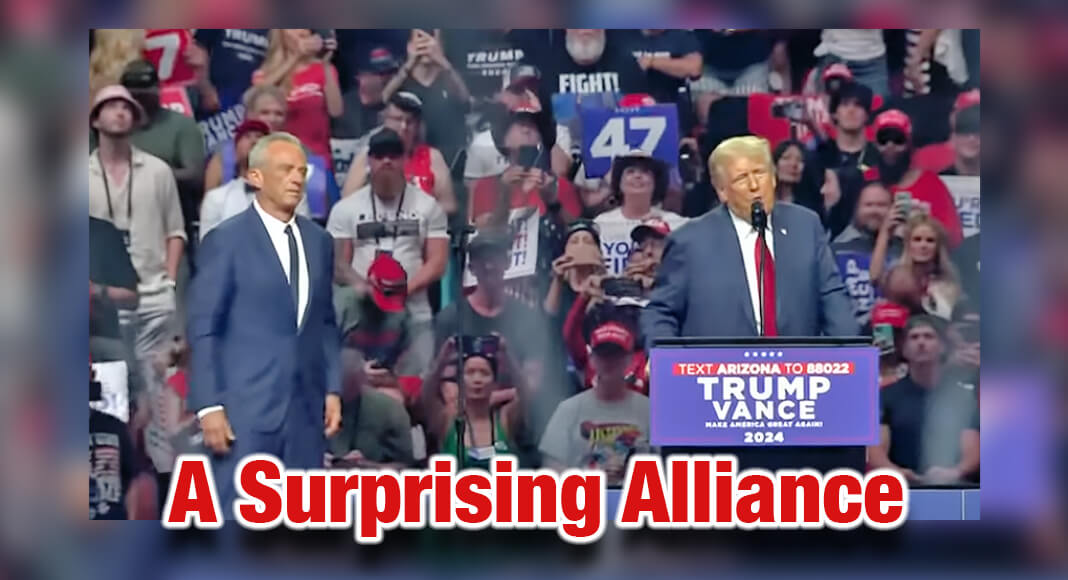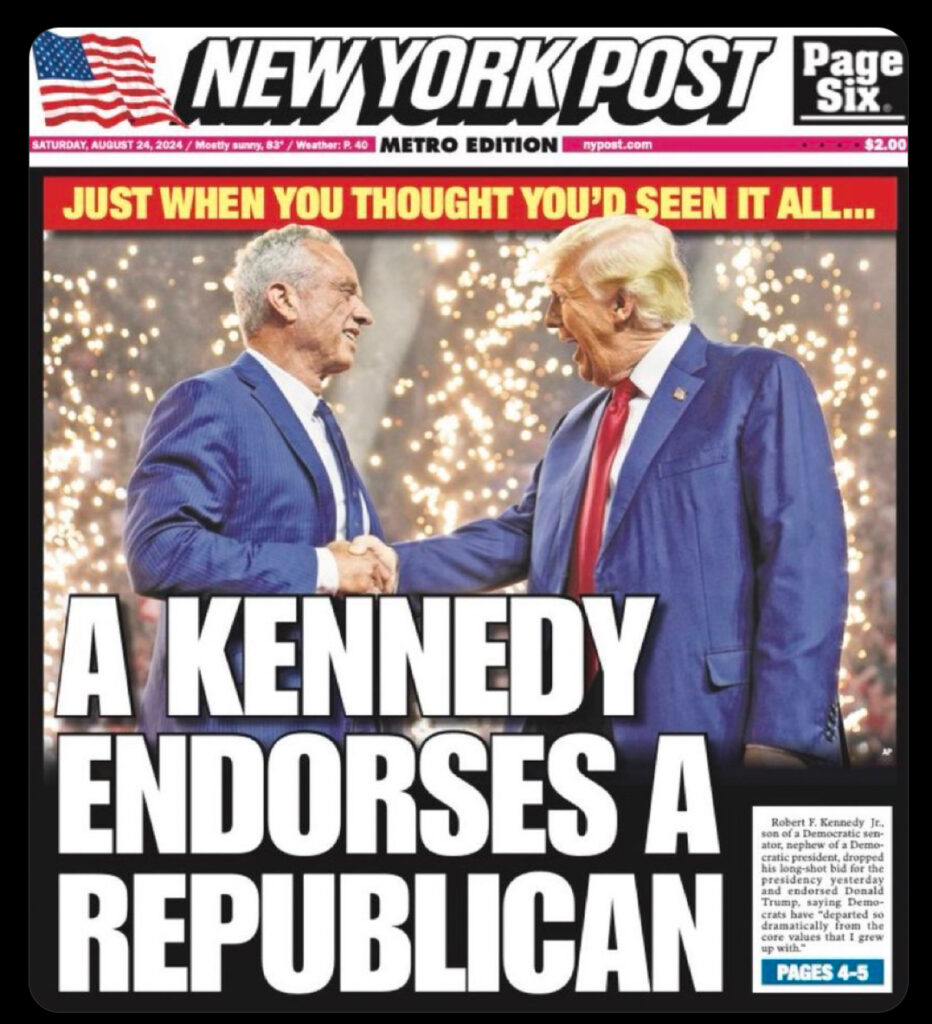
Texas Border Business
Texas Border Business
In a surprising political turn of events, former President Donald Trump introduced Robert F. Kennedy Jr. (RFK Jr.) at his rally on August 23, 2024. The event marked a significant moment in the 2024 presidential race as Trump, a Republican, welcomed Kennedy, a former Democratic presidential candidate, into his political fold. This alliance signals a unique collaboration that transcends traditional party lines, focusing on shared values and mutual goals.
Trump opened his introduction with a warm welcome, describing Kennedy as “an incredible champion for so many of these values that we all share.” He highlighted Kennedy’s “extraordinary campaign for President of the United States” over the past 16 months, commending him for raising critical issues and bringing people together across the political spectrum. Trump noted, “His candidacy has inspired millions and millions of Americans,” and emphasized the positive nature of Kennedy’s campaign, which he said was “grounded in the American values of his father, Robert Kennedy, a great man, and his uncle, President John F. Kennedy.”

Trump’s admiration was palpable as he reflected on Kennedy’s applause: “I don’t think I’ve ever introduced anyone that got applause like he just got. I must tell you; I don’t think I’ve ever introduced anybody who got applause like that. Amazing.”
Trump’s speech also pointedly criticized the Democratic Party’s treatment of Kennedy during the primary season. He argued that if Kennedy had been allowed to participate fully, “he would’ve easily beaten Joe Biden.” Trump alleged that the Democratic National Committee imposed stringent rules to prevent Kennedy from running, such as requiring “65% of the vote to run,” which he described as unprecedented. This critique highlighted a shared dissatisfaction with the Democratic establishment.
Trump drew parallels between his and Kennedy’s experiences, emphasizing the risks they both faced for standing against the political establishment. He referenced an assassination attempt against him in Pennsylvania last month, linking it to the historical context of the Kennedy family’s tragic encounters with violence. “He knows firsthand the risks incurred by leaders who stand up to the corrupt political establishment,” Trump said, aligning their struggles and reinforcing the gravity of their alliance.
To honor Kennedy’s commitment and his family’s legacy, Trump announced a bold new initiative: “I am announcing tonight that upon my election, I will establish a new independent presidential commission on assassination attempts. They will be tasked with releasing all of the remaining documents pertaining to the assassination of President John F. Kennedy.” This pledge to uncover the truth behind historical events and recent attacks positions Trump as a champion of transparency and justice.
Trump further praised Kennedy for his decades of work advocating for public health and environmental safety. He acknowledged Kennedy’s efforts to address concerns about toxins in the environment and pesticides in food, issues that have resonated with many Americans. Trump pledged to establish a panel of experts, in collaboration with Kennedy, to investigate the rising rates of chronic health problems and childhood diseases. “We want every child in America to grow up and to live a long and healthy life,” Trump emphasized, reinforcing a shared commitment to the well-being of future generations.
Taking the stage, RFK Jr. thanked Trump and shared the story of their growing political partnership. He described how a mutual contact, Calley Means, had connected them following the assassination attempt on Trump. Kennedy noted that despite their initial differences, they found common ground on key issues, such as public health, food safety, and the fight against government corruption.
Kennedy passionately discussed the importance of addressing the health crisis facing American children, describing them as “the unhealthiest, sickest children in the world.” He advocated removing harmful chemicals from food and freeing regulatory agencies from corporate influence. “Don’t you want healthy children? And don’t you want the chemicals out of our food?” he asked the crowd, highlighting a shared priority with Trump.
Kennedy also supported Trump’s foreign policy, particularly his opposition to continued U.S. involvement in foreign wars. Kennedy quoted Trump as saying, “He didn’t want any more $200 billion wars in Ukraine” and argued that resources should instead be invested domestically to rebuild the middle class and industrial base.
On the issue of censorship, Kennedy echoed Trump’s commitment to protecting free speech and preventing government overreach. He argued that censorship is a gateway to totalitarianism and that a government that silences its opponents is capable of any atrocity. “And don’t you want a president who will protect America’s freedoms?” Kennedy asked, framing their alliance as a defense against growing authoritarianism.
The introduction of RFK Jr. by Donald Trump at this rally was more than just a moment of political theater; it was a signal of a big-time alliance between two figures from different political backgrounds united by common goals. Their collaboration reflects a convergence of values on issues such as government transparency, public health, anti-censorship, and a reevaluation of U.S. foreign policy. As they look forward to the 2024 election, this partnership could reshape the political landscape, appealing to a diverse range of voters disillusioned by the status quo in both major parties.
This unexpected alliance suggests a potential shift in American politics that seeks to transcend traditional party boundaries in favor of a focus on shared values and goals. The impact of this collaboration will unfold in the months leading up to the election, but it already hints at a new direction for American political discourse.
















